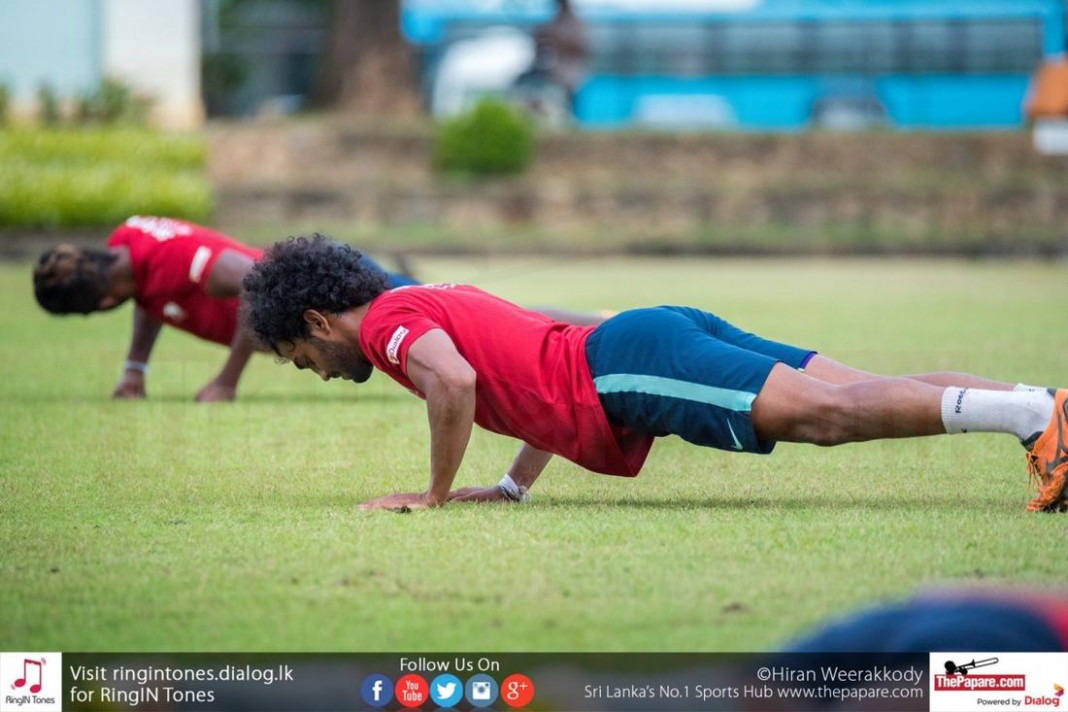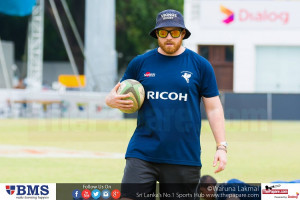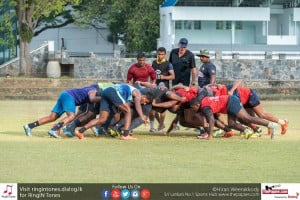Nick Groube was once a world ranked triathlete. He was once a student at Christchurch Boys High School, the same school that gave us Daniel Carter and 44 other All Blacks. He was once part of the coaching team in the Strength and Conditioning Program for the Canterbury Rugby Union in New Zealand.
Where is Nick Groube now? He is now the head of Strength and Conditioning for the Sri Lankan Rugby Union and in time we will see exactly what all that pedigree can bring as he puts our rugby programs under the microscope. ”Sleep, nutrition and hydration are three areas that need to be addressed from the outset”, Groube explains, “and constant reviewing of where the athletes are at holistically is also a priority”.
The Canterbury Rugby Union’s Strength and Conditioning program is amongst the best in the world. From a results perspective it is the best provincial rugby program in the world and it would rival most international programs for cups and trophies in the cabinet. But if you look closer it is not the competition results that is the focus in Canterbury, it’s the player wellbeing that is paramount.
“A male athlete can perform at his peak until well into his mid-30s. If his well-being is managed from a young age he can expect a long and successful career”, says Groube as he continues his line about their holistic approach. “Players are reviewed not only on their physical performance but also on how their training is fitting into the rest of their life. How is their family life? What about hobbies, their relationship with their wife or girlfriend? All of these factors must be taken into account when a review is being done with a player and this is tracked and recorded. The numbers don’t lie”.
‘The numbers don’t lie’ is a line Groube repeats often over the next hour. “When we measure anything in the strength and conditioning program, we want to see that the results land in the specified parameters. For any position in rugby there are specific parameters for all the exercises and tests players complete. For example a forward who weighs 110kgs and stands 180cms needs a certain aerobic fitness to fulfill his roles for the team. His test results need to produce a certain set of numbers or we change his program to get him to achieve the desired numbers”.
Changing the program to achieve the desired numbers is another way of saying the player comes to the ground two hours before the weights session to be part of a gut busting session to improve his fitness. “When we get the desired results, the player can sleep in and come to the weights session at 9am. Players have nowhere to hide because ‘the numbers don’t lie’.” The program Groube is implementing has definite steps to ensure the players have safe movement function, then functional strength before base strength. “Our program is all about finding a way to develop players at the correct rate. I have a moral compass that dictates how hard I push the players. My goal is to improve the rugby wellness of the players and to give them some long term goals.” says Groube, “and the goal of the program is to get the personal targets to match the club and national representative targets”.
Groube has set a hard line policy for inclusion in his Strength and Conditioning program, “We want to help the athletes that want to improve, (and) the clubs and schools that want to improve”, Groube continues, “We will set up specific programs and if the players, clubs or schools don’t follow the set programs we will move on to others that do. At present the learning curve, or the development rate, is too steep for the players and this equals injured players. That doesn’t help the player or the team but presently the focus is on getting the results now.”
As we see from the movement of coaching staff in Sri Lanka, the rugby culture is very results driven. Pressure comes from sponsors who put pressure on the administration. This makes its way to the coaching staff and then to the players. That contributes to getting the desired result during this sponsor’s window, and anything short of a successful result during that time is considered a failure and someone must be held accountable.
A different way to approach the situation would be to concentrate on the players, concentrate on the process of giving the players the best opportunity to fulfill their potential and let the results take care of themselves. By nurturing the players, Sri Lanka can have its best talent playing, and improving, for an extended amount of time. Maybe then, with a long term plan, we can start aiming higher than our world ranking of 51, behind Malaysia, South Korea, Hong Kong and Japan in our region.
The process based system being introduced by Groube will make its way down from the National teams to the clubs and schools of Sri Lanka. The real success will not be seen this year but in the next five years when we have the schoolboy players that have grown with this holistic view on player welfare and rugby wellness. Let’s hope our culture has the patience to play the long game
















